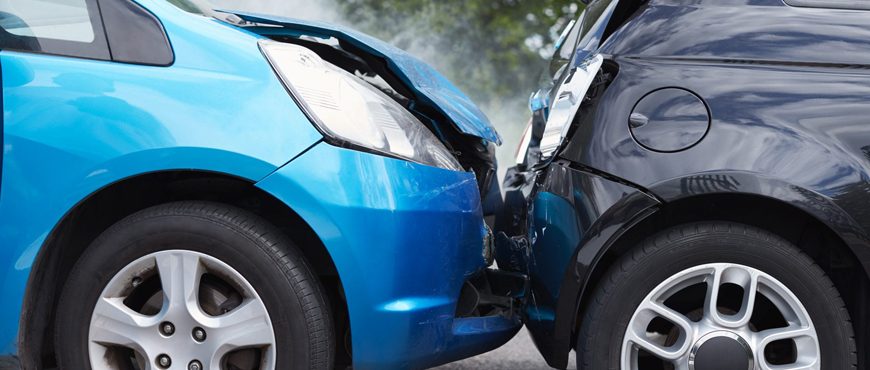
Navigating the Aftermath: A Guide to Handling Turo Accident Claims Like a Pro
Hey everyone! If you’ve ever found yourself scrolling through the Turo app, marveling at the array of vehicles you can rent from friendly locals instead of the usual rental giants, you’re not alone. Turo has revolutionized the way we rent cars, making it a breeze to find a ride that suits our style and budget. But what happens when things go south, and you’re left dealing with the aftermath of an accident in a Turo rental? Well, buckle up, because we’re about to dive deep into the world of Turo accident claims, armed with a dash of humor, a pinch of personal experience, and a truckload of helpful info.
Table of Contents
Before the Accident: The Calm Before the Storm
Let’s start with a bit of prep work. Just like you wouldn’t step onto the volleyball court without knowing your team’s game plan, you shouldn’t hop into a Turo rental without understanding the insurance landscape. Turo offers a range of insurance options for both renters and car owners, which can feel as complex as choosing the right defensive strategy against a team of seasoned spikers. Navigating Turo’s insurance options is crucial; they offer various levels of coverage, from minimal to premium, each with its own set of pros and cons.
Documenting your rental is another pre-game ritual that shouldn’t be overlooked. Just as a coach reviews game footage to note every serve and block, you should thoroughly document the condition of your rental car before driving off. Snap photos or take a video of the vehicle from every angle, ensuring you capture any existing damage. This will be your visual evidence, your replay footage if things go awry and a claim needs to be filed.
At the Scene of the Accident: Game Time
Drawing from a not-so-fond memory of being rear-ended in a construction zone (a classic hit and run, no less), the first few moments post-accident can feel like you’ve just been spiked in the face with a volleyball. The initial shock and confusion are understandable, but remember, it’s game time, and you need to act swiftly and smartly.
The initial steps to take post-accident involve ensuring everyone’s safety, calling the authorities, and documenting the scene. Think of it as calling a time-out; you need to assess the situation calmly. Exchange information with the other party involved, take pictures of the damage, and gather any witness statements if possible.
Contacting Turo should be your next move. Just as you’d report a foul play in a game, report the accident to Turo as soon as possible. Their 24/7 support team will guide you through the next steps, which is somewhat reassuring when you’re standing on the sidelines, trying to make sense of the chaos.
Filing a Claim with Turo: The Playbook
Now, onto the main event: filing a claim with Turo. This process can feel as daunting as preparing for a championship match against an undefeated team, but fear not. I’ve got the playbook to guide you through, step by step.
Navigating Turo’s claims process begins with understanding that timing is everything. Much like how a well-timed serve can set the pace of a volleyball match, promptly filing your claim can significantly influence the outcome of your case. Turo requires that you report any accidents within 24 hours or by the end of the next rental day, whichever is sooner. Delaying beyond this timeframe could result in penalties, or worse, denial of coverage.
When filing a claim, you’ll need to arm yourself with as much information as possible. This includes the date and time of the accident, photos of the damage, a copy of the police report (if applicable), and any other relevant details. It’s like gathering your team’s stats and game footage before heading into a strategy meeting; the more comprehensive your evidence, the stronger your case.
For those interested in diving deeper into the world of Turo accident case studies and the importance of thorough documentation and evidence, this insightful article on Turo accident case studies highlights how leveraging technology and AI is becoming a game-changer in building solid legal strategies.
Continuing down this winding road, let’s explore what comes after you’ve successfully filed your claim with Turo. This part of the journey can feel as uncertain as waiting for the referee’s decision after a contentious play. But, with the right mindset and a bit of insider knowledge, you’ll be ready to face whatever comes your way.
After the Claim: The Waiting Game
Once your claim is in Turo’s hands, the real waiting game begins. Turo’s response and assessment process can feel as slow as watching paint dry, but patience is key. The platform typically responds within a few days to acknowledge receipt of your claim and outline the next steps. This phase involves a detailed assessment of the accident, which may include an investigation into the damage, review of the documentation provided, and possibly, a third-party appraisal.
The outcome of your claim can vary as widely as the strategies in a volleyball playbook. In some cases, Turo may cover the full cost of repairs under the insurance policy you selected at the time of rental. In others, particularly if the damage is minor, you might be directed to settle directly with the car owner. It’s important to stay engaged and responsive throughout this process, much like staying alert on the court, ready to adapt your strategy as the game unfolds.
Possible Outcomes: Preparing for Every Scenario
Navigating the aftermath of a Turo accident claim can lead to a variety of outcomes. If you’re found liable for the accident, you may be responsible for covering the deductible, which varies depending on the insurance option you chose when booking the rental. On the flip side, if another party is at fault, Turo’s insurance should step in to cover the damages, though this process can involve its own set of complexities, such as dealing with third-party insurers.
In the rare event that your claim encounters hurdles – say, disputes over liability or disagreements about the extent of damages – it’s crucial to remain calm and collected. This is where your thorough documentation and understanding of Turo’s policies will pay off, serving as your defense in what can sometimes feel like a contentious match point.
FAQs: Serving Up Answers
To wrap things up, let’s tackle some of the most frequently asked questions about handling Turo accident claims, serving up the answers like a seasoned pro ready to ace the serve.
- “What if the other driver is at fault?”
If the other driver is at fault, you should still report the accident to Turo and provide all relevant documentation. Turo will liaise with the third-party insurance company to seek compensation for damages. Remember, the key here is comprehensive documentation and patience. - “How long does the process take?”
The timeline for resolving a Turo accident claim can vary greatly, from a few days to several weeks, depending on the complexity of the case. It’s like preparing for a tournament; the more complicated the play, the more time it takes to plan and execute. - “Can I choose my own repair shop?”
Turo typically allows car owners to choose the repair shop, but as a renter, you can suggest a shop for consideration. It’s a collaborative effort, much like devising a game plan that plays to every team member’s strengths.
Conclusion: Reflecting on the Journey
Navigating a Turo accident claim can feel like an intense match, full of unexpected turns and moments of high pressure. But just like in sports, preparation, knowledge, and a cool head can make all the difference in achieving a favorable outcome. Reflecting on my own experiences with car accidents, both within and outside the realm of Turo, I’ve learned that the key to handling any crash aftermath is a combination of prompt action, thorough documentation, and a solid understanding of your rights and responsibilities.
So, there you have it, folks. A comprehensive guide to handling Turo accident claims, infused with a bit of personal insight and a healthy dose of sports analogies. Whether you’re a Turo newbie or a seasoned renter, I hope this guide helps you navigate the choppy waters of accident claims with confidence and ease. Stay safe on the road, and remember, the best defense is a good offense – or in this case, being well-prepared and informed.








